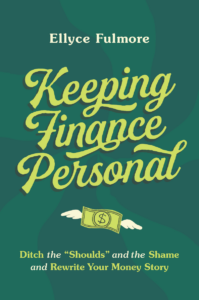The name is misleading because people with ADHD don’t necessarily have a deficit of attention, but rather, the inability to focus their attention.
ADHD coach Brett Thornhill says, “It’s like your brain keeps switching between 30 different channels and somebody else has the remote.”
The stereotypical view of someone with ADHD is a hyperactive boy who can’t pay attention in class, has seemingly endless energy, and is constantly moving, fidgeting, and talking. But ADHD is also the person with their head in the clouds, the daydreamer. They are easily distracted and have problems sustaining their attention. With ADHD you can present more hyperactive symptoms, more inattentive symptoms, or have a balance of both. In addition to these types, ADHD exists on a spectrum and can impact people in different ways, to varying degrees. All three types interfere with the individual’s functioning in multiple settings. ADHD is very real, very challenging, and can often be debilitating.
I have the combined type of ADHD, so I experience both hyperactive and inattentive symptoms without one of those being far more prevalent. While I did well in school, almost every report card mentioned that I was a chatterbox. When I wasn’t busy talking, I was staring out the window, doodling, or working on homework for another class. None of these behaviours was flagged as a problem because of my grades. This is often what happens to women and girls with inattentive ADHD.

Since my moment of free-falling, I have found solid ground. I’ve built a successful business, transformed my financial situation, and found myself in the happiest, healthiest relationship I’ve ever had. It turns out the problem was never me, or my undiagnosed ADHD, but the fact that society is not designed to accommodate anyone who diverges from the norm. Of course, I would be remiss if I didn’t point out that my privilege greatly contributed to this outcome as well.
In this chapter, we are going to touch on some of the common challenging aspects of managing money with ADHD, and how you can work with your brain instead of against it. I want to acknowledge that there is a lot of research currently being done on ADHD, especially in women, so some of this information might change as new discoveries are made. It’s important to note that everyone experiences their ADHD differently, and some of the money struggles I talk about won’t be applicable to you. Whether you’re reading this chapter for yourself, or to support someone else in your life with ADHD, give yourself the space and grace to experiment and find what works.
How ADHD impacts your money
I opened up a $10,000 line of credit when I was in college to help cover some of my expenses as a student. I remember thinking to myself I’ll only use like $1,000 and pay it off once I’m back at my full-time summer job. But it only took me two months to max out that $10,000 line of credit because I couldn’t stop impulse spending.
Yes, I know, I’m wondering how that was possible too. Prior to my diagnosis, my brain was feeling so out of it most of the time that I would spend money just to feel something. This line of credit was the gateway to even more spending, and before I knew it I had a maxed-out credit card, two lines of credit, and my student loans.
This is how I ended up in $35,000 of debt, $15,000 of which was high interest. I would look at my credit card statement and not even remember half the purchases I made. It seemed like everyone around me had it all figured out, and here I was, free-falling.




